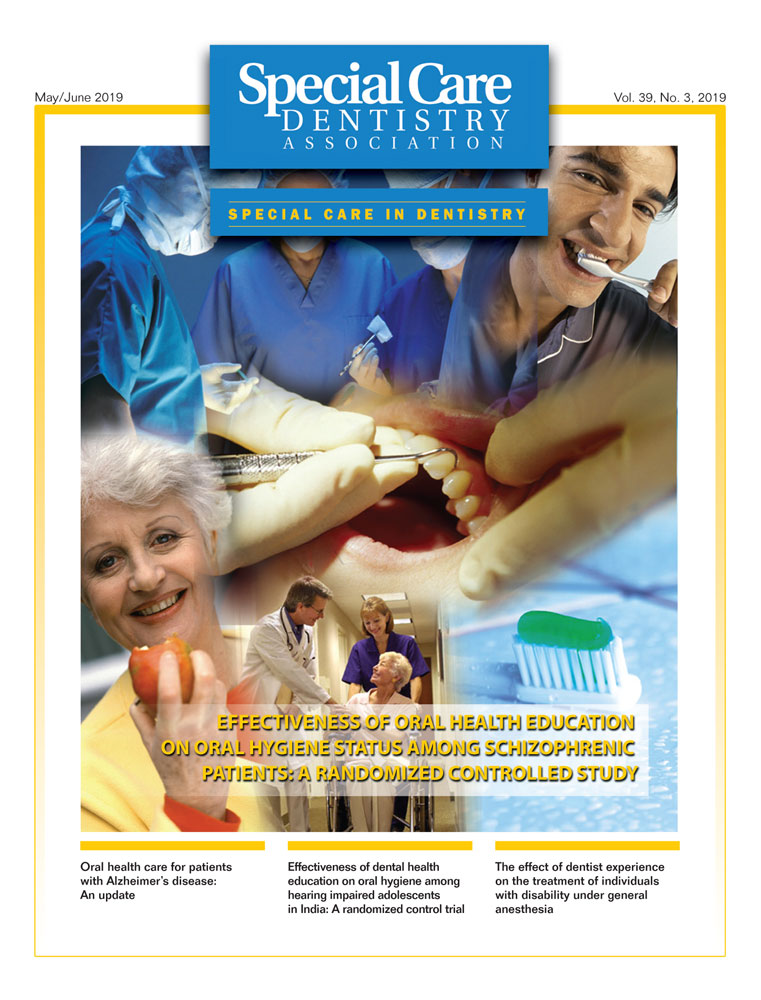The oral health status of Syrian refugee children in Jordan: An exploratory study
Funding information: Deanship of Academic Research, The University of Jordan.
Abstract
Objectives
To examine the oral health status and dental treatment needs of children Syrian refugees in Jordan.
Methods
A convenience sample of Syrian refugee children who aged between 6 and 12 years at al-Zaatari camp was used for the purpose of this study. Examination was performed according to the method proposed by WHO. DMFT and gingival indices were examined and reported by a trained dentist.
Results
A total of 125 children were examined. The mean DMFT score was 3.64 ± 9.83, and the mean dmft score was 2.98 ± 4.7. More than half of children (50.4%) were found to have high caries risk according to CAMBRA scale. Most of the DMFT score was contributed by decayed and missing teeth. Nearly, half of children (44.8%) showed fluorosis and almost all children had chronic gingivitis. More than half of the participants (55.2%) reported that they needed dental treatment during their stay at the camp, but only half (52%) received treatment mainly tooth extraction and prescription of medication. Only 6.4% of children received conservative dental treatment.
Conclusion
Syrian refugee children in Jordan were found to have high levels of unmet dental needs. Accessibility of dental services was found to be a primary barrier to care.
CONFLICTS OF INTEREST
None.




